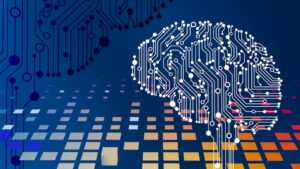Have you ever wondered why landing an engineering job feels more like interacting with a smart machine than a person? With every passing year, interviews are changing. It’s no longer just about shaking hands and walking someone through your resume. Now, it might mean answering a series of timed problems, coding live on a screen, or facing algorithm-generated questions. Today, many companies rely on artificial intelligence (AI) to help evaluate candidates fairly and faster. That’s why preparing well for engineering interview questions is essential beyond just the basics and focusing more on how a person thinks, solves problems, and communicates under pressure.
AI Has Changed the Interview Game
AI is no longer a futuristic idea—it’s already shaping real-world hiring processes. In engineering interviews, AI tools now screen resumes, score responses, and suggest questions based on the job description. Instead of only meeting a hiring manager, candidates might first complete video interviews where an AI analyzes tone, word choices, and even facial expressions.
What’s behind this shift? It’s partly the large number of applications most companies receive and the need to find the right talent efficiently. With so many people applying for engineering roles, it’s nearly impossible for human recruiters to manually screen every resume or conduct multiple rounds for each applicant. AI steps in to help sort through the data, find strong matches, and save valuable time.
Smart Questions Need Smarter Answers
Today’s engineering interview questions often come from databases built using AI technology. These tools learn from thousands of past interviews, identify patterns, and suggest questions that best measure skill levels. For example, someone applying for a software engineering job might face logic puzzles, coding tests, or real-time problem-solving challenges tailored to their experience.
These aren’t just random questions. They are selected based on a mix of skills listed in the resume, the job description, and even past performances by other candidates. That means each question is meant to bring out something specific about how a person thinks, solves, or communicates.
The Focus Is Now on Consistency and Fairness
One of the big reasons AI is used in interviews is to reduce human bias. Traditional interviews can be affected by mood, personality, or even unconscious preferences. AI-driven systems aim to be more consistent by scoring every applicant based on the same criteria.
This doesn’t mean the system is perfect. Humans still train AI and can sometimes reflect biased patterns from past data. But in general, it helps remove many of the small unfair advantages or disadvantages a candidate might face in a typical interview setting.
Real-Time Feedback Helps Candidates Improve
One interesting thing about AI-based interviews is that they can offer instant feedback. Some platforms let candidates see their performance right after the test, showing which areas were strong and which needed improvement.
It’s also helpful for those new to the field. Instead of guessing what went wrong in an interview, candidates get real data and suggestions. For companies, this means a better experience for applicants, which greatly matters in today’s competitive job market. Companies like Intuit are exploring smarter ways to combine people and technology to improve hiring experiences for both sides.
What This Means for the Future of Engineering Jobs
As AI keeps growing, so will its role in hiring. Engineering candidates will need to adjust their technical skills and how they present themselves. That includes learning to speak, think out loud, and solve problems under time limits, all while staying calm in front of a camera or screen.
But don’t worry, humans usually make the final decision. AI helps companies narrow their options and focus on the best matches. Candidates who understand how these systems work can use that knowledge to prepare smarter and stand out.








